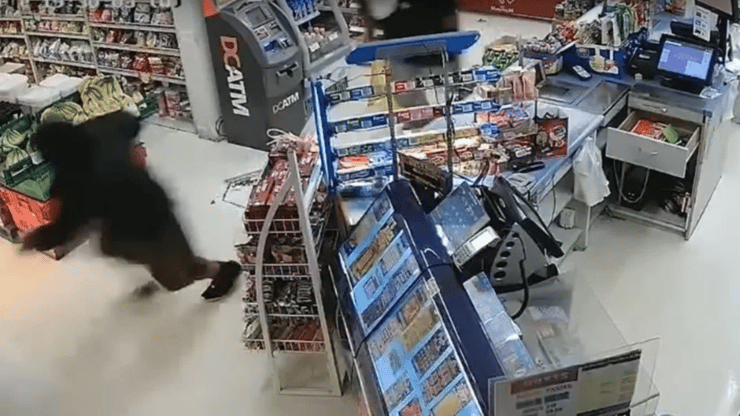Firm Steps On Retail Crime Long Overdue

The New Zealand government’s recent announcement of tougher laws to tackle the surge in retail crime has been largely welcomed by the Indian retail community, which has endured years of violent attacks, robberies, and ram raids. For Indian shop owners and workers, this situation has become intolerable, with many businesses facing repeat incidents of crime that threaten their livelihoods and personal safety. Prime Minister Christopher Luxon and Attorney General Paul Goldsmith have both outlined new measures designed to restore law and order, as also the formation of the Ministerial Advisory Group (MAG) on retail crime representing a significant step forward.
The establishment of this advisory group sends a clear signal that the government is now serious about addressing the concerns of the retail sector. The inclusion of prominent retail figures highlights the government’s intention to draw on industry expertise to develop effective solutions.
However, the challenges are considerable. Retail crime in New Zealand has skyrocketed by 86 per cent over the past five years, with a deeply concerning 72 per cent increase in sexual assault-related crimes occurring at retail premises. For the 230,000 New Zealanders employed in the retail sector, this dramatic rise in violent crime has created an unsafe working environment.
Prime Minister Luxon reaffirmed the government’s commitment to reducing retail crime and protecting workers and business owners. He stressed the need for a strong stance on law and order, providing retailers with tools for self-protection. The MAG, with a $1.8 million yearly budget, will develop policies like empowering security guards to detain offenders and using facial recognition to prevent repeat crimes.
Attorney General Goldsmith has stressed the need for clarity around the rights of retailers and security personnel when confronting criminals. In many cases, the legal framework has left businesses uncertain about what actions they can take to protect themselves from shoplifters or violent offenders.
The MAG will be responsible for developing proposals that address these ambiguities, ensuring that shop owners can act within the law to defend their premises without putting themselves or their staff at risk. This is particularly important for the Indian community, many of whom operate small businesses that have become frequent targets for crime.
For these business owners, the ability to protect their livelihoods is not just a matter of financial security, but also personal safety. The MAG’s role will be pivotal in bridging the gap between policy and the reality faced by those on the front lines of retail crime.
Dairy owners like Rajbir Singh, whose Auckland business has been ram-raided twice, have expressed frustration with the slow pace of government action to date, and the expectation is that the MAG will move quickly to deliver practical solutions. Singh and others have called for the advisory group to engage directly with local business owners and victims of crime, ensuring that their experiences inform the development of new policies For many in them Indian retail community, the creation of the MAG is a positive step, but it is only the beginning.
The advisory group will need to demonstrate that it can deliver results by working closely with retailers, workers, and law enforcement to create a safer environment for all. This includes addressing the root causes of youth offending, which has been a major contributor to the surge in retail crime. Goldsmith has highlighted the importance of reducing serious repeat youth offending by 15 per cent, a goal that will require not only tougher penalties but also targeted interventions to prevent young people from turning to crime in the first place The government’s commitment to reducing violent crime by 20,000 victims by 2029 sets an ambitious target, but it is one that the retail community will be eager to see achieved.
The Indian retail sector, which has been disproportionately affected by the rise in crime, will be closely watching the work of the MAG to ensure that it delivers meaningful change.
The inclusion of technology, such as facial recognition, as part of a broader crime prevention strategy, will be crucial in ensuring that businesses are equipped to deal with the evolving nature of criminal activity While the government’s recent announcements are a promising development, the road ahead will not be easy.
The MAG must act swiftly and decisively to provide solutions that restore confidence in the ability of the state to protect its citizens. For Indian retailers and others in the sector, the hope is that this is the beginning of a new chapter—one where they can operate without fear of violence and theft. The success of the advisory group will be measured not by the policies it proposes, but by the tangible improvements in safety that it delivers for New Zealand’s retail community





